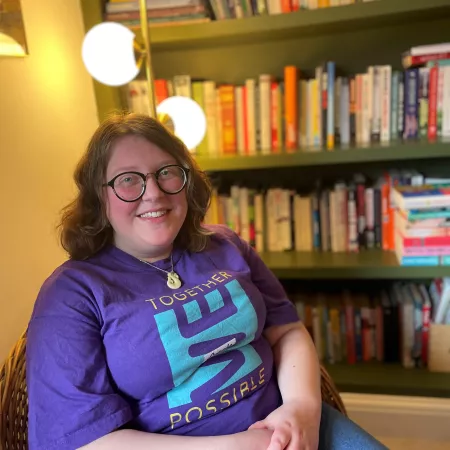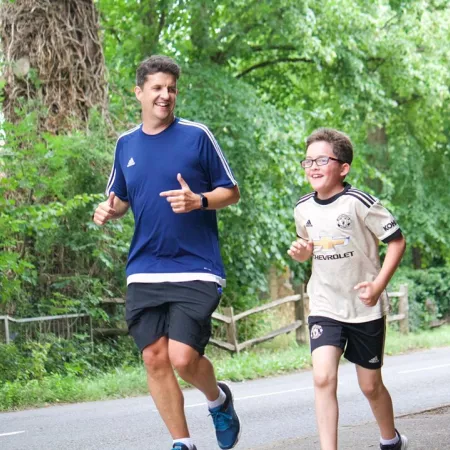
Managing your well-being alongside epilepsy is a challenge. Firstly, what does well-being mean, as well-being is different for everyone. For me, my ‘well-being’ is my mental health. Due to the side effects of my medication, I’ve always struggled with my mood dipping and feeling anxious, especially when if I have had a tonic-clonic seizure and ended up in the hospital. Throughout my teenage years, I did not know how to manage my mood, and I struggled to understand why all my friends were so happy and I was not. I am 23 now, and for anyone who is struggling with their mental health, whether this is because of epilepsy or not, I can assure you there is a light at the end of the tunnel. However, the journey to a better mental state takes time and involves a lot of productivity, which is not always easy. By making simple lifestyle changes, we all can improve our mental well-being. Here are some tips that I am finding useful and that are helping my overall happiness:
Work hard, play hard
Create a routine that works for you! I mentioned this point in my previous blog post, ‘Growing Up with Epilepsy’, but I cannot stress enough how important having a routine is. As we are currently in lockdown, it is easy to sleep till noon and let the day go by without getting anything done. Over time, this lifestyle is not good for anyone’s mental health. What I have found helpful is treating every day like a 9 to 5. I get up early, sometimes 9, sometimes 10, and work throughout the day, take breaks when I need to, this may be every hour or so, and focus on my university work or whatever else needs doing. I am currently being tested for ADHD, so focusing on something for a long time is not exactly my forte. So, a less pressured day of doing work and knowing that I have the evening to relax and have some fun has ultimately increased my productivity, feelings of satisfaction, and overall happiness. Having a routine also means inserting a portion of the day just for you. So, put that time in for yourself and listen to what your body needs, whether this is a nap, listening to music, meditating, going for a long walk, doing some exercise, or sitting in the sun and reading a book. Having a routine works both ways and can be fun!
What to eat and what to drink…
If you are like me and are a massive foodie, it can be easy to eat unhealthily and not worry about what we put into our bodies. Eating healthily is something my mum has always taught me, and even though I hate to say she is right, eating healthily is one of the best things we can do for our overall well-being. This simple lifestyle change will help improve your energy, routine, and happiness. What we put into our bodies also includes drinking, whether this is endless fizzy drinks for the teenagers or alcohol for the adults, limiting how much we drink of the bad stuff, and drink more water (which I know sounds so boring!) can change the way we live our lives, and therefore, our overall mental state. Nonetheless, this does not mean you can’t have any treats for yourself, just make sure not to indulge and put your well-being first. Everyone’s allowed to treat themselves, it’s just about finding the perfect balance for you.
Let’s talk!
As I also mentioned in my previous post, talking about how you feel will always help your mental well-being, as you’ll be able to understand and reflect on your feelings. I find that the more people I meet with epilepsy, these emotions that we feel are harder to understand and process. Therefore, I could not recommend anything better than receiving therapy. Due to having non-epileptic seizures, I was referred to the neuropsychiatry division at the South London and Maudsley Hospital in London. Being told that therapy would help these non-epileptic seizures was initially terrifying, but four years later, I have come to learn so much about myself, and I am so grateful that therapy was introduced into my life. You can receive therapy via charities, and the NHS (go and see your GP for more details). However, if you feel as though you cannot wait and need therapy now, you can go privately, and this does not have to be expensive either. Please visit https://www.bacp.co.uk and go to their therapist directory. This website is where you may be able to find a therapist in your local area that works for you, and who can help you with your current mental well-being.
The doom and gloom of social media
As we all know, social media comes with the good and the bad. However, if have epilepsy, sometimes social media can make us feel a bit rubbish as it becomes easy to compare lives, lives that seem better than our own. Nevertheless, we must remember, everyone hides in front of a screen, so try and not fall into the abyss of social media! My simple piece of advice is, if you are not in a great place and social media is contributing to that, put your phone down and distract yourself and keep yourself busy. Try to read a book that you have wanted to read for ages, or pick up a new hobby, like learning the ukulele! Everyone’s lives are different, and even when you’re stuck in bed resting from a post-tonic-clonic seizure, social media definitely does not help, but by putting the phone down, we can contribute to our overall happiness.




